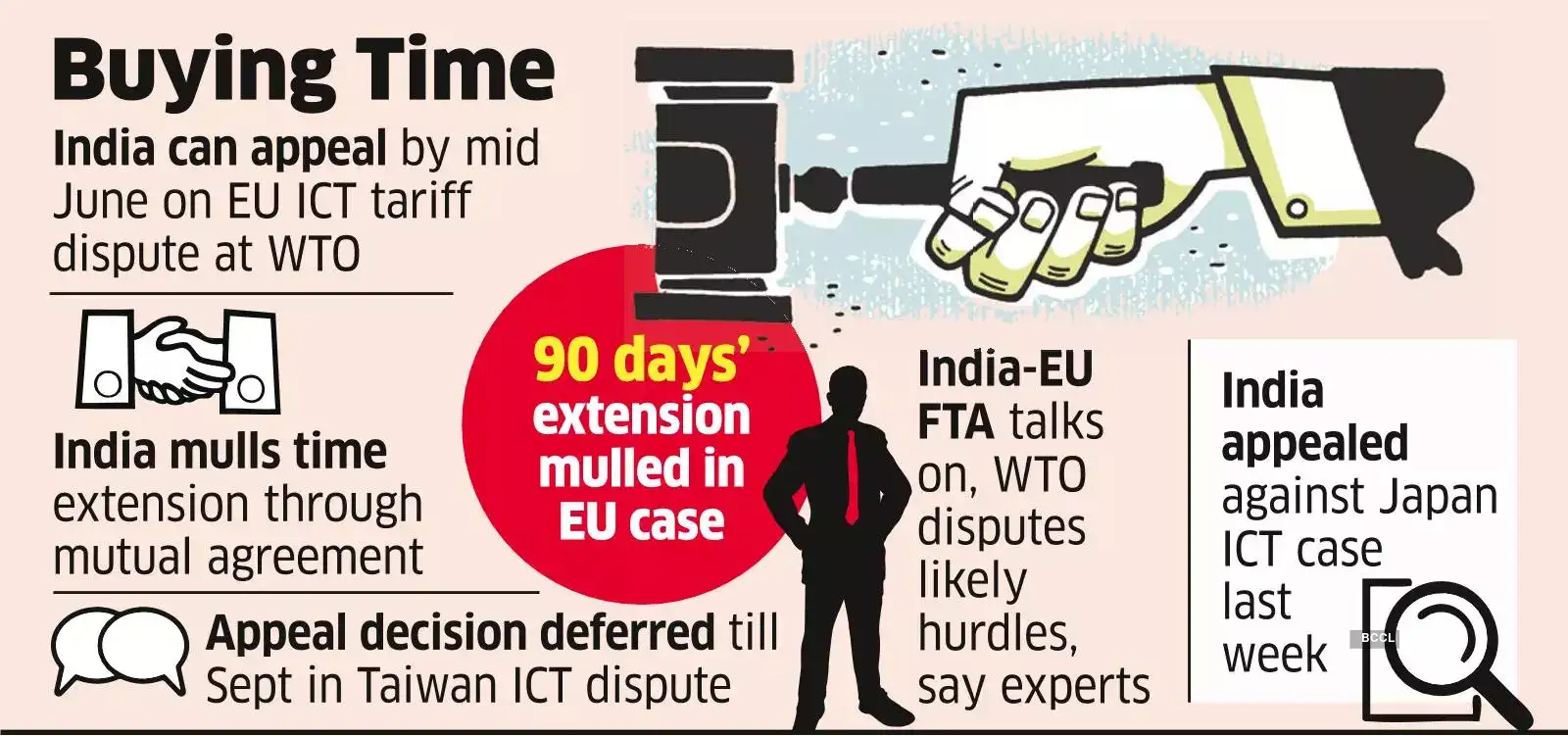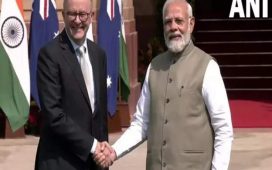Last week, India appealed against Japan and has extended the time to decide on an appeal against Taiwan on similar rulings in the ICT disputes.
A WTO panel in April, said that India’s tariffs had violated global trading rules under the Information Technology Agreement (ITA).
“In the EU case, the best way is to buy time. We can defer it through mutual agreement. There is no fixed duration or the number of times of this extension,” said an official.
The ruling has rattled the industry, which is apprehensive about cheaper imports finding their way and denting domestic manufacturing.
This pause means a breather for the makers of these products.
“It’s about buying time and get more component makers to set shop in India so that we have a supply chain through the production-linked incentive schemes. Once that is done, no duty protection would be required,” said an industry representative As per WTO rules, within 60 days after the date of circulation of a panel report to the members, the report is adopted unless a party to the dispute formally notifies the Dispute Settlement Body (DSB) of its decision to appeal or the DSB decides by consensus not to adopt the report.

With Taiwan, the time to appeal has been deferred by 90 days till September. “We might look at a 90-day extension period with the EU as well,” the official added.
The dispute was filed in 2019 when the three members had challenged the import duty of 7.5% – later increased to 15% – levied by India in 2017. India further raised the duty to 20%.
India had imposed these duties to boost local manufacturing.
New Delhi has rejected the EU’s offer to resolve the issue through a Multi-Party Interim Appeal Arbitration Arrangement which is an alternative system to resolve WTO disputes.
“India and the EU are negotiating a free trade pact and any dispute or pending issue at the WTO can become an impediment. So, mutually agreed extension is being considered,” said a Delhi-based trade export.









